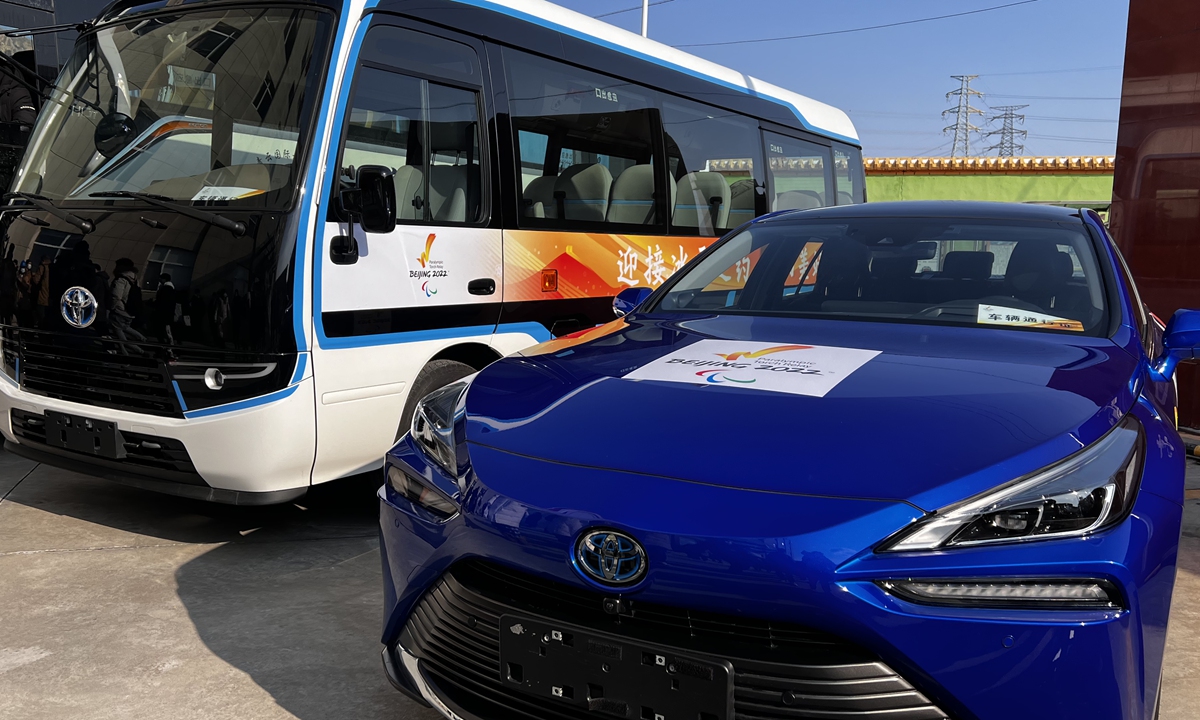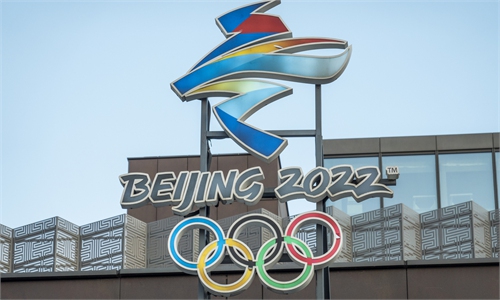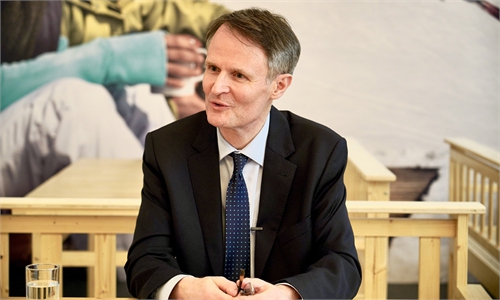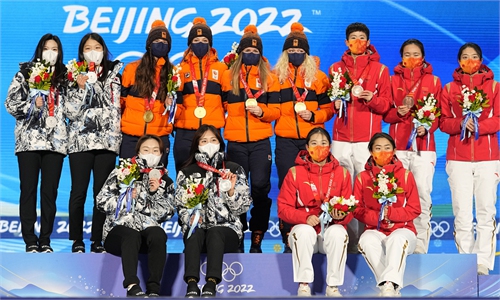
Photo: Tao Mingyang/GT
The Beijing 2022 Winter Olympics, the largest-ever demonstration of the use of hydrogen-powered vehicles in the history of the games, marks an industrial breakthrough and scaled application of China's hydrogen industry from one to 100, and is set to open a new chapter of development of the hydrogen industry chain in the capital city, Chinese officials said.
"The Beijing Olympics has 816 hydrogen-powered vehicles as the main force for transportation, the largest-ever in international sports events, with the most application scenarios," Wu Zhiquan, deputy director of the Transport Department of the Beijing Municipal Bureau of Economy and Information Technology, told the Global Times on Tuesday.
He added that with three hydrogen fuel-cell cars in use and the first refueling station being built, the 2008 Beijing Olympics represented the movement of China's hydrogen industry "from zero to one."
Wu revealed that 312 hydrogen-powered vehicles, which only emit pure water, are now being used in the Beijing and Yanqing competition zones, and a total of 42.04 tons of hydrogen was consumed from the opening on February 2 to Monday at the two competition zones.
Beijing Huanyu Jinghui City Gas Technology Co, a main supplier of hydrogen power for the games, produces and extracts hydrogen out of "green electricity" made from photovoltaic and wind power, Zhang Yan, deputy general manager of the company, told the Global Times.
"Our company can provide 1.5 tons of hydrogen to multiple refueling stations for the Olympics, which approximately accounts for half of the overall hydrogen consumption volume," Zhang said.
One of the major hydrogen buses in service was co-developed by Chinese carmaker Foton and Japan's largest carmaker Toyota, as well as a number of Chinese hydrogen battery and engine developers.
The 12-meter-long bus, called Ouhui, can avoid 57.86 kilograms of carbon dioxide emissions every 100 kilometers. That translates into a reduction of 115.72 kilograms of carbon emissions every day, Liu Jihong, vice president of the AUV Division under Foton Motor Group, told the Global Times.
According to Liu, the company's research and development team overcame technological difficulties, including starting vehicles in extreme cold weather conditions, slippery roads due to snow and ice, and steep inclines.
"In the Zhangjiakou competition zone, the Ouhui hydrogen-powered bus can start its engine in -30 C weather, and it will automatically activate protection procedures for storing and parking at -40 C," Liu said.
He added that the company also created China's first "U-degree" comprehensive heat management technology, which is able to collect waste heat and transform it to internal car heat and power systems for defrosting and demisting.
"When the power of the fuel cell reaches 75 percent, all waste heat can be recycled, reducing energy consumption by 7.6 percent," Liu noted.
Observers said that the Winter Olympics, highlighting the concept of a green Games and sustainability, will usher in a golden era for the hydrogen industry's development in Beijing.
Wu said that the capital aims to build a "self-innovative and coordinated developed" industrial cluster for key parts and equipment building for hydrogen vehicles by 2025.




